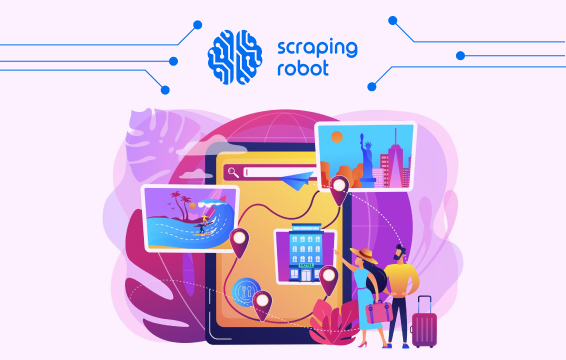Travel APIs and Travel Trends: Connecting With Trip Data

Table of Contents
1. How Travel APIs Have Changed the Industry
2. Different Categories of Travel API
3. 4 Reasons Why You Should Integrate Travel APIs Into Your Application
Just as modern means of transportation have turned the world into a global village and connected even the remotest of islands to the rest of the world, so also have travel APIs connected the travel industry and made it much easier to build and develop travel applications. It’s exciting, really. The travel industry used to have one of the highest barriers to entry. The sheer volume and variety of data and online infrastructure required to build a travel application that served the needs of travelers properly was just too much for any single person to take on.
However, with the emergence of travel APIs, you can take location data from Google, airline data from any airline with a public API, accommodation data from a hotel service like Airbnb, ride-hailing data from a service like Uber and develop an application that caters for all the traveling needs of your users from buying a plane ticket to ordering a ride at their destination. That is how valuable travel APIs are to the industry.
But how exactly do these pieces of software do what they do? And which travel APIs are the best to consider when building your travel application? In this article, we’ll look at the basics of how travel APIs work, why you should integrate travel APIs into your application, and some of the best APIs out there, including one that can help you obtain data from any website on the internet.
How Travel APIs Have Changed the Industry

The travel industry used to be very proprietary. If you wanted to book a flight, you went to the airline’s website. You need accommodation? You go to the hotel’s website. You couldn’t even rent cars in advance. However, third-party distributors for travel services gradually emerged. Some people took it upon themselves to build platforms that aggregated flight times and prices, hotel locations and prices, restaurant locations and prices, and so on. But pre-APIs, even these third-party distributors were insular companies. Most of them stuck to just one aspect of the travel industry. There were flight aggregation sites, hotel booking sites, restaurant review sites, etc. And then came the API revolution.
With the development and industry-wide adoption of API technology, the travel industry experienced a facelift. The way applications were built and consumed changed, and it became possible to link all aspects of the industry from a single application interface. Travel APIs have a done a lot to make the travel industry more accessible, to users and owners. Airlines sell more tickets, hotels get more bookings, even tourist attractions get more visits because travelers can access all these functions from a single app on their mobile phone. While we are still recovering from the effects of Covid, here are some initial predictions about how travel will change that emphasize the value of travel APIs in the industry. Before Covid, travel was already changing. People are becoming more concerned with sustainability while traveling, taking more experience-oriented trips, and finding the ideal destinations that are always shifting. Travel APIs make all these and more possible by creating an immersive experience for users that relies on aggregating travel data from all over the internet and making it available through a single interface.
Different Categories of Travel API

There are several categories of APIs that exist in the travel industry, all of them collaborating to make it as easy as possible for users to access all aspects of the travel industry. Here are some of them:
1. Transport APIs: These categories of APIs allow developers to import transportation data from flight routes and ticket costs from airline websites, to data from car rental services and rail transport APIs. You can also complete your transportation offer with buses, taxis, and trams with data from smart city APIs, ridesharing and taxi APIs like Uber and Lyft, and data from applications that have integrated data cities into their systems like Google Maps Directions. Examples of transport APIs include:
- Flight APIs
- Car rental APIs
- Rail APIs
- Smart city APIs
2. Hotel APIs: This set of APIs expose data from accommodation providers to your application interface. If you are trying to sell hotel rooms and accommodations to travelers, then these are the set of APIs you should explore. You can make use of APIs from Online Travel Agencies like Expedia or Bed Banks APIs like Hotel Beds and Travco. Depending on close your application is to the actual source of the accommodations, you can make use of any of these classes of APIs to expose the booking functionality on your application and sell accommodations to travelers with ease.
3. Location data and traffic APIs: If you are building an application that helps tourists to find centers of attractions in popular tourist destinations or just an application to help users navigate a new city, then this set of APIs is a must for your developers. You can also use this set of APIs to add location-awareness to your travel application using geocoding and location data from platforms like Google Maps, MapBox, etc.
4. Tours and attractions APIs: There are also websites that aggregate tour data and popular attraction sites in tourist destinations all over the world, exposing it via an interface to travel applications along with ticket-purchasing capabilities.
5. Business travel APIs: If you are building a B2B travel application, an API like SAP Concur can help give travel administrators a view into how employees are accruing expenses on Uber rides, for example.
4 Reasons Why You Should Integrate Travel APIs Into Your Application

Reduces time-to-market
By integrating travel APIs into your application, you cut down the development time by a lot. Instead of manual integration and step-by-step implementation of your application’s functionality, your developers can work in parallel, building against the APIs and focus on expanding on the unique proposition of your application.
Lower costs
If your applications are taking lesser time to develop, that means they require fewer materials and less effort to develop which means they cost less to develop. Since the final data is provided by APIs, maintenance costs are also lower. Your development team only builds the unique functionality of your application, leaving other needs to be fulfilled by APIs.
Better and more accurate data
In an industry where inaccurate data might cost a lot of things, including lives, it is essential that you ensure the accuracy of the data you provide. Using APIs ensures that you are getting data directly from the source application, which removes the possibility of human error in providing data for your users.
Better offerings
With the sheer variety of travel APIs that currently exist, adding more functionalities to your application is simply a matter of picking the right API and integrating it. Travelers nowadays have gotten used to the luxury of planning their entire trip from a single application on their mobile phone and it is essential you provide them with this capability or something close to it to favorably compete in the industry. Using APIs solve this problem for you by making it possible to add more functionalities with diminished costs.
Read more about identifying business trends here.
More Than Just Another Travel API…

Sometimes, it is not enough to have data about all the hotels in town or the best places to walk your dog in a favorite tourist destination. Sometimes you need to offer your user mundane data like the number of bakers in town, or the fastest place to get pizza. At times like this, you need an API that can help you extract data from any website on the internet and feed it into your application. And that is what we at Scraping Robot offer you. We have developed an exemplary public API that is coupled with web scraping software to help you access all the data you need and the ones you didn’t know you needed. By integrating our public scraping API into your applications, you can complement your other travel APIs with relevant data that makes your offerings more robust. We have prebuilt modules that can help you extract everything from business data to social media data. And if we don’t have a module for your needs, contact us here to get started with your custom scraping solution.
With our scraping API, you can also scrape restaurant reviews (learn more), hotel reviews, and tour reviews to give your users more information about the functionalities you provide for them.
Conclusion

The travel industry is no longer a daunting behemoth of stone and steel, intimidating newbies and sending them scurrying away. Now, it is a giant ecosystem of interconnected services, connected by travel APIs that expose unique functionalities from different applications and make traveling easier than ever before. And with an API like Scraping Robot’s, you can connect your application to the rest of the online world with ease and get the best of everything, travel or non-travel.
The information contained within this article, including information posted by official staff, guest-submitted material, message board postings, or other third-party material is presented solely for the purposes of education and furtherance of the knowledge of the reader. All trademarks used in this publication are hereby acknowledged as the property of their respective owners.
